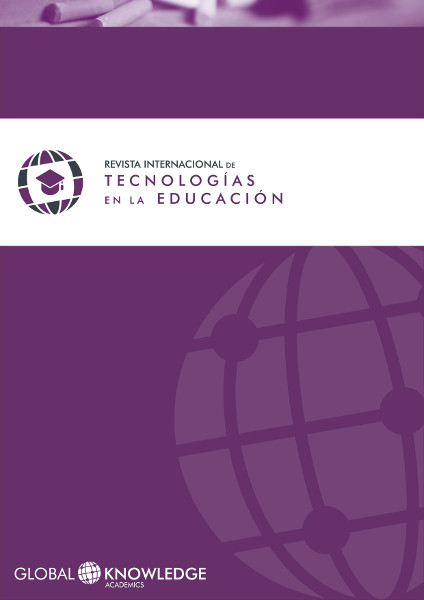Distance Education: Promoting Quality in Education
DOI:
https://doi.org/10.37467/gka-revedutech.v3.291Keywords:
Distance Education, Teacher Education, Teaching QualityAbstract
Teacher training guided in the use of Information and Communication Technologies, ICTs, through education mode Distance, distance education, has provided a strong alternative as regards the training of teachers and the struggle for quality education, with the expansion of offering various courses in this mode and in the interests of expanding the quality of education. The quality of education is seen as an effective learning space from the set of pedagogical and technical quality policies development (Mec, 2011). To answer this set of pedagogical and political techniques is necessary that teachers are up to date. Considering these issues, this article aims to analyze the quality of education through teacher training course offered at a distance by a Brazilian public university. The methodology used is descriptive exploratory research, a case study, in which the research subjects are the teachers graduates of the eighth edition of the teacher training course for the Educational Service Specialist (ESA). The research instrument was a questionnaire and the analysis of the results are satisfactory, showing that the course presents quality and contributes positively to the training of teachers.
Global Statistics ℹ️
|
293
Views
|
196
Downloads
|
|
489
Total
|
|
References
Andrade, E. M. de (2009). As práticas pedagógicas do tutor na educação a distância. In: Anais do IX Seminário Pedagogia em Debate e IV Colóquio Nacional de Formação de Professores (p. 7). Curitiba, Brasil.
Bardin, L. (2011). Análise de conteúdo. São Paulo, Brasil: Edições 70.
Belloni, M. L. (2009). Educação a distância. Campinas, Brasil: Autores Associados.
Brasil, M. E. D. (2005). Decreto nº 5.622 de 19 de dezembro de 2005. Brasília, Brasil.
Brasil, M. E. D. (2008). Decreto nº 6.571, de 17 de setembro de 2008. Dispõe sobre o atendimento educacional especializado, regulamenta o parágrafo único do art. 60 da Lei nº 9.394, de 20 de dezembro de 1996, e acrescenta dispositivo ao Decreto nº6.253, de 13 de novembro de 2007.
Brasil, M. E. D. (1996). Lei de Diretrizes e Bases da Educação Nacional. Lei n 9.394, de 20 de dezembro de 1996. Brasília, Brasil.
Brasil, M. E. D. (2011). Plano Nacional da Educação. Projeto de Lei n 8.035 (PNE 2011/2020), 11 de janeiro de 2011. Brasília, Brasil.
Brasil, M. E. D. (2007). Referenciais para elaboração de materiais didáticos para a EaD no ensino profissional e tecnológico. Brasília, Brasil.
Brasil, M. E. D. (2008). Relatório de monitoramento de educação para todos Brasil: educação para todos em 2015; alcançaremos a meta? Brasília, Brasil: UNESCO.
Yin, R. K. (2001). Estudo de caso: planejamento e métodos. Porto Alegre, Brasil: Bookman.
Lobo, E. (2002). Modelo de procedimento para projetos de capacitação de recursos humanos no contexto corporativo. Florianópolis, Brasil: Universidade Federal de Santa Catarina.
Neves, C. M. C. (2003). Referenciais de qualidade para cursos a distância. Brasília, Brasil: Ministério da Educação, Secretaria de Educação a Distância.
Martins, J. G. e Oliveira, N. F. de (2008). Material didático: desconstruindo o ontem para construir o hoje e o amanhã.
Valente, J. A., Moran, J. M. e Arantes, V. A. (Org.) (2011). Educação a Distância: Pontos e Contrapontos. São Paulo, Brasil: Summus.
Downloads
Published
How to Cite
Issue
Section
License
Copyright (c) 2016 Revista Internacional de Tecnologías en la Educación

This work is licensed under a Creative Commons Attribution-NonCommercial-NoDerivatives 4.0 International License.
Those authors who publish in this journal accept the following terms:
- Authors will keep the moral right of the work and they will transfer the commercial rights.
- After 1 year from publication, the work shall thereafter be open access online on our website, but will retain copyright.
- In the event that the authors wish to assign an Creative Commons (CC) license, they may request it by writing to publishing@eagora.org







